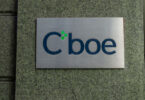Solidum Re chose to use a blockchain as a pragmatic alternative to Euroclear.
Most Insurance Linked Securities (ILS) are catastrophe bonds or CAT bonds, which are used as an alternative source of reinsurance. The majority of catastrophe reinsurance relates to the US market for weather events, which means it’s a risk that is tricky to diversify. Back in the 90s Hurricane Andrew and the Northridge earthquake resulted in a number of insurers folding, and reinsurers decided they wanted to limit their exposure. So they started sharing the risk by securitizing it.
In the past when Solidum issued Cat Bonds, they used Euroclear for settlement. Compared to stocks, Cat Bonds are relatively specialist, and to access Euroclear, a business needs to go via their banking relationship. This is in part because Cat Bonds are collateralized: investors deposit funds to cover the potential insurance risk. This bank-as-gatekeeper role creates a barrier to entry given the banks are keen to earn fees for their service.
One of the triggers for Solidum Partners creating a settlement blockchain was when they were switching away from their existing bank. A potential banking partner offered access to Euroclear on condition that a Billion worth of business was passed their way. Solidum Partners is often involved in relatively small bonds in the $15m range, so this was clearly not viable.
Cedric Edmonds, a partner at Solidum Partners, decided to set up a blockchain himself, the ILSBlockchain. He implemented it technically and drew up documents with a lawyer. The investors in Cat Bonds know each other, “a relatively small market of $80 billion”, so he approached investors who’d participated in previous transactions, and they said they were interested. Especially given it’s easier, faster and cheaper than Euroclear.
In August 2017 Solidium Re started with a small bond and created and issued $14.8 million of notes on the blockchain to six investors who are all ILS funds. Early December 2017 saw the first execution of a secondary transaction.
Edmonds said “When they become a participant on the blockchain they have to pass KYC. Regulatory-wise it’s all OK. For a private placement, it’s not a problem. For some notes, we’re looking to potentially get a listing in Guernsey on the Channel Islands Stock Exchange, and for that, there is regulation for the control of settlement systems. But the regulator has agreed that we’re not subject to that regulation because actually, we don’t control the system because it’s decentralized.”
“Each of the investors have their own node. We (Solidum) act as the permissions grantor, to give them access to the blockchain because it’s a permissioned blockchain, and after that, they’re on their own. They manage their wallets, they manage their assets, they do everything on their own without us. We don’t have any other control, and therefore we can’t be subject to regulation. We’re not a controller of the settlement system.”
Solidum plan to use the blockchain for their issues going forward and are chatting to another issuer who is interested. They’re also talking to banks. “If the issuer doesn’t want to have their own node, if the bank has a node, they can hold the securities with their bank in the traditional manner” commented Edmonds.
Technology
Edmonds is a fund manager, not a developer, but knows his way around code because Solidum’s work involves complex modeling. He used MultiChain, which is designed to be pretty quick to get started with.
The system provides atomic transactions where the two legs are delivery and payment. Either both work or they don’t. Edmonds emphasized that the immutability of a blockchain can be a disadvantage as well. “We can’t correct erroneous transactions. We can ask people to do the reverse, but we can’t go in and correct it.”
MultiChain is one of the more mature permissioned blockchains. It’s based on Bitcoin, with some added features, and without the energy-guzzling aspect. The founder, Gideon Greenspan, is a respected cryptographer and is comfortable puncturing the hype, and identifying applications ill-suited to blockchain that would be better off implementing a database and API.
For ILS settlement, blockchain is a good match, and the speed of implementation of MultiChain was an advantage.







